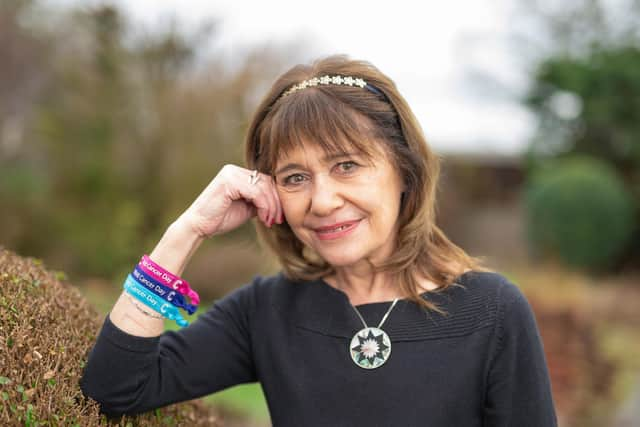North Yorkshire cancer survivor’s World Cancer Day plea
and live on Freeview channel 276
Alison Lemke, 60, who is in remission from anal and lung cancer, looked after her husband, Ray, who died at home in May 2021 aged 67, following his diagnosis with bowel cancer.
One year later, Alison’s mum, Marjorie Ainsbury, who had mouth and throat cancer, died aged 99.
Advertisement
Hide AdAdvertisement
Hide AdSharing her story ahead of World Cancer Day on February 4, Alison said she was in shock when she learned she had cancer in August 2019.


“When I got that first diagnosis it was over the phone, on a Friday afternoon and I was at work in a busy office. I went to see my boss in tears and went home.”
After successful treatment, a routine scan in 2020 showed she had developed secondary lung cancer.
Following further treatment and now in remission, Alison, who lives at Gristhorpe near Filey, owes her life to progress in cancer research. She hopes that sharing her story will inspire others to mark the awareness day by joining the fight against the disease.
Advertisement
Hide AdAdvertisement
Hide AdThere are around 1,500 new anal cancer cases in the UK every year. Treatment for anal cancer often includes a combination of surgery, chemotherapy and radiotherapy depending on the stage at diagnosis. But these can have severe side effects.
With around 32,500 people diagnosed with cancer every year in Yorkshire & the Humber, Alison's message is clear – to save lives tomorrow, Cancer Research UK needs the public’s support today.
That’s why she’s calling on people across North Yorkshire to give regularly to the charity to help fund long term research projects that could drive new breakthroughs for people like her. Life-saving cancer treatments are made possible by months and months of trialling, testing and learning. But monthly progress in research needs monthly donations.
Alison, a former support worker for people caring for someone at home, said: “I’m sure we would all love to see cancer gone but this won’t be possible without the dedication of scientists who are relentlessly striving towards new milestones month after month. They need our support.
Advertisement
Hide AdAdvertisement
Hide Ad“We know that one in two people will get it, so we need people to have the skills, the technology and the equipment to try to stop it.
“I want to be able to contribute to the cause. All this research and training and equipment costs money. Without the money the whole thing would stop.”
Cancer Research UK has been at the heart of the progress that has already seen survival in the UK double in the last 40 years.
Its research has led to more than 50 cancer drugs used across the UK - and around the world - from widely used chemotherapies to new-generation precision treatments.
Advertisement
Hide AdAdvertisement
Hide AdIn fact, drugs linked to the charity are used to treat more than 125,000 patients in the UK every year – that’s three out of every four patients who receive cancer drugs on the NHS.
People can also help support vital work such as this by getting a World Cancer Day Unity Band from one of the charity’s shops while stocks last. Available in pink, navy or blue, wearing one is a way of showing solidarity with people affected by the disease.
Donate monthly to life-saving cancer research here.